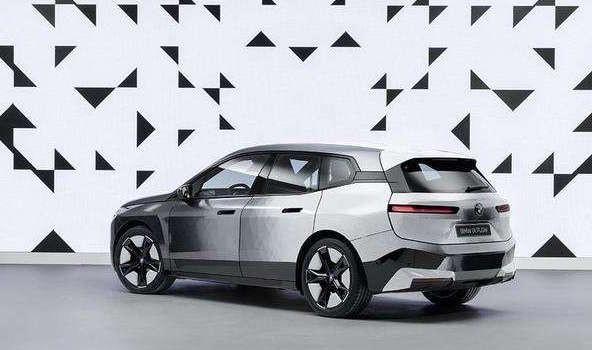Although the popularity of traditional auto shows in various countries has decreased in recent years, the enthusiasm of car companies for the International Consumer Electronics Show (hereinafter referred to as "CES") is still high, and CES has become a stage for car companies to show off their skills. At the just-opened 2022 North American CES, more than 200 auto companies participated in the exhibition, setting a record high.
A number of car companies to start the electrification product offensive, General Motors in North America CES at a time released five pure electric vehicles, BMW launched pure electric vehicle iX M60, flagship electric model BMW iX, etc., Mercedes-Benz global debut VISION EQXX concept car, its single charge range of more than 1000 kilometers, Audi launched the first electric sports car, Chrysler announced plans to fully realize electrification in 2028.
In addition to electric vehicles, many car companies also demonstrated new technologies. On the flagship electric model BMW iX, BMW used "electronic ink" to achieve a one-click change of color of the body. "E-ink" contains millions of transparent microcapsules, each containing a negatively charged white pigment, as well as a positively charged black pigment. By controlling the electrodes on both sides of the microcapsule, the desired color appears on the body surface. BMW manufactures different sizes of "electronic ink" according to the pattern and the curvature of the car surface, which is then fixed to the car, and finally achieves a key change of color through the change of electrodes. Hyundai Motor is showcasing the new robot module PnD, whose goal is to create an all-in-one integrated mobility solution that provides intelligent braking, steering, in-wheel electric drive and suspension hardware in a single module. Mercedes-Benz's VISION EQXX concept car is developed with software-driven development, which applies a large number of lightweight technologies and sustainable materials throughout the vehicle, and adopts human brain bionic technology.
Global EV sales are expected to reach 6.5 million in 2021, more than double the 3.1 million in 2020, given that sales in the last month of each year are typically stronger, according to data released by EV Sales. In the entire new energy vehicle market, Tesla still occupies a high market share. In the first 11 months of 2021, Tesla ranked first in the global electric vehicle market, occupying 13.7% of the market share, followed by BYD (9%) and SAIC-GM-Wuling (7.1%). Although the sales volume of the traditional car giant in the global electric vehicle market is also rising, there is still a certain gap with Tesla, with Volkswagen and BMW Group ranking fourth (5.7%) and fifth (4.4%).
Volkswagen CEO Diess has said that in the current market, only by keeping up with Tesla can it surpass it at some stage. Judging from the NORTH American CES exhibition, the traditional car giants are attracting the attention of consumers through new technologies, and high and new technologies will gradually become the core competitiveness of car companies. From the perspective of the time node of electrification, car giants such as Audi, Mercedes-Benz and BMW will launch products built on the new architecture platform in 2025. On the other hand, the vehicle and machine system is also the focus of competition at this CES exhibition. Mercedes-Benz showcased the next-generation MBUX infotainment system Hyperscreen at CES, BMW unveiled the next-generation iDrive infotainment system, and Hyundai Motor also unveiled a modular engine system. This means that car companies are constantly making efforts in the field of digitalization.

In addition, in the field of automatic driving, cooperation between car companies and chip manufacturers has become the trend of the times. Qualcomm announced that it will supply chips to automakers Volvo, Honda and Renault, accelerating its cooperation with traditional car companies to digitize product lines, while saying it has reached an agreement with Volvo and Polestar, a brand backed by Geely Holdings, to start using "Snapdragon cockpit" chips and Alphabet's Google operating system in cars this year.
In addition to cooperation, many car companies have invested in chip manufacturers. On the one hand, this is related to the current shortage of chips. On the other hand, with the advent of the era of intelligent vehicles, the competitiveness of car companies in software is becoming more and more important. Yu Kai, CEO of Horizon, once told reporters that the demand for AI chips in OEMs is intensifying, which has deepened cooperation between chip manufacturers and OEMs. Yu Kai said that the main engine factory hopes that the autopilot function is comparable to Tesla. In addition, it is better to surpass Tesla in terms of cockpit experience, which is also the path of intelligent driving in China, while foreign users currently pay less attention to the driving experience.
Whether it is electrification products or the promotion of autonomous driving technology, it shows the determination of car companies to comprehensively transform digitalization, but it is not easy to achieve digital transformation. According to a report released by McKinsey, comprehensive digital transformation depends on realizing the full digital potential of all functions, from marketing and sales to product development and procurement, manufacturing and supply chain to indirect functions of the enterprise. Many companies have already embarked on digital transformation initiatives, and when they try to integrate technology into their business models, they often face several major challenges, including high costs, unprovable business cases, hard-to-come short-term returns, and unclear pilot value.